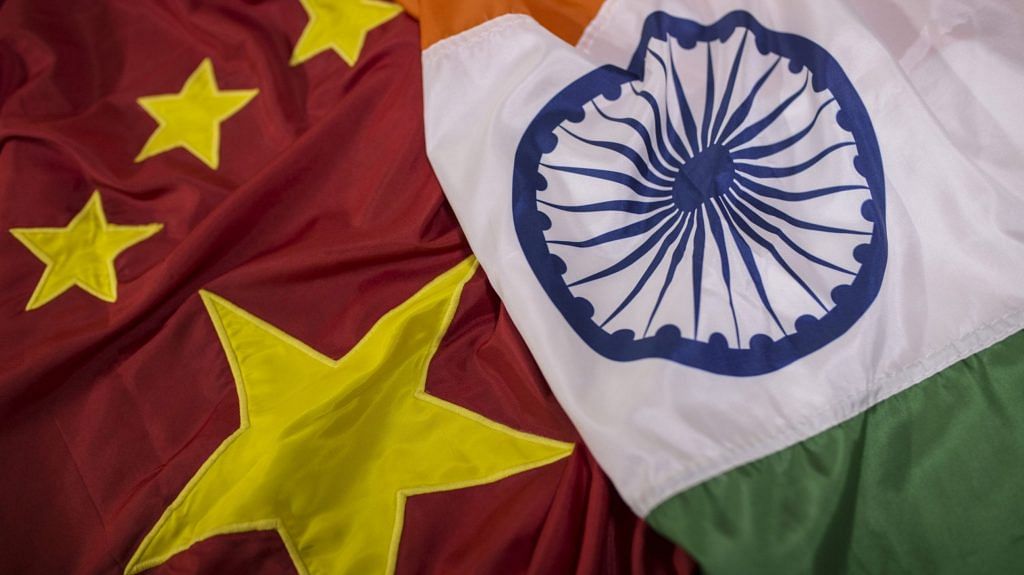New Delhi: With tensions between New Delhi and Beijing easing in Ladakh, India is looking to “cautiously” approve some pending investment proposals from China, multiple sources told ThePrint.
The Narendra Modi government is planning to “speed up” Chinese investment proposals, albeit small ones pertaining primarily to the manufacturing sector, almost a year after the border stand-off in Eastern Ladakh began in April-May 2020, sources said.
The idea is to “open the gates for the stalled economic ties slowly and steadily”, the sources added.
In April 2020, India issued an order that mandated neighbouring countries to seek government permission if they are looking to make investments in the country. The order was mainly aimed at blocking predatory acquisition of companies by China amid the Covid pandemic.
While proposals moved by China are beginning to be approved, sources said there is no change in the order itself.
“We have sped up the process of approvals of FDI proposals from China. Except for proposals in strategically sensitive sectors, we are clearing it up fast,” said a senior finance ministry official who did not wish to be identified.
The proposals for which approvals are being sped up relate to manufacturing, the official added.
In the past year, through heightened tensions between both countries, New Delhi remained firm on its stance that normal business and trading relations with Beijing cannot continue unless there is peace and tranquility in the border areas — something that has been reiterated by External Affairs Minister S. Jaishankar.
According to the sources, the issue of easing the economic aspect of the bilateral relationship was discussed during diplomatic talks over the past few weeks.
On 25 February, days after the first phase of disengagement at Ladakh, in the Pangong Lake area, was successfully concluded, Jaishankar and China Foreign Minister Wang Yi had a 75-minute conversation.
During the talks, New Delhi said it was necessary to disengage at all friction points in order to contemplate de-escalation of forces in this sector, adding that this alone “will lead to the restoration of peace and tranquility and provide conditions for progress of our bilateral relationship”.
India and China have also agreed to establish a hotline between the two ministers to resolve issues quickly, the details of which are being worked out.
On Friday, India’s Ambassador to China Vikram Misri met Chinese Vice-Foreign Minister Luo Zhaohui, who is also a former Chinese envoy to India, and discussed how maintaining peace in border areas will “provide conditions for progress in relations”.
Ambassador @VikramMisri met H.E. VFM Luo Zhaohui today at MFAChina. Amb emphasised that maintaining peace & tranquility in border areas had always been the basis for development of bilateral relations. 1/3@MEAIndia @DrSJaishankar @HarshShringla pic.twitter.com/4bDZsP45Ih
— India in China (@EOIBeijing) March 5, 2021
Also Read: India’s appeasement policy towards China has ended, says former Army chief Gen Malik
Restrictions in FDI policy ‘stand as it is’
In April last year, the Union government mandated that all foreign direct investment (FDI) from China will require government approval. This was part of a policy to regulate FDI investments from countries with whom India shares a land border.
Beijing had called the April 2020 move “discriminatory” and threatened action against India at the World Trade Organisation (WTO) even as New Delhi refused to review it.
While China has been pushing India to reconsider the policy, the restrictions “stand as it is” for now, according to an official of the Department for Promotion of Industry and Internal Trade (DPIIT).
With respect to China, the official added, it is “not an open arms” policy.
The official said a few proposals from China have been approved recently, but didn’t give a specific number.
Companies requiring government approval have to register themselves on the FDI portal and their applications will be taken up by the relevant departments, including the home ministry, for security clearance, the official added.
Narrowing trade deficit between India and China
While Chinese investment proposals are now being slowly released, India is also keeping a “watchful eye” on the trade deficit, which is expected to come down to around $45 billion-$46 billion in the financial year 2020-2021, sources said. The data for 2020-2021 is still awaited.
The trade deficit between India and China stood at $48.65 billion in 2019-2020 and $53.56 billion in 2018-19, according to the department of commerce.
This is because Indian exports of iron and steel, copper and aluminium to China are rising while import of Chinese intermediary goods is falling.
Biswajit Dhar, trade expert and economics professor at Jawaharlal Nehru University, said the main reason why imports are falling is because of sluggish economic growth in India and the fact that the Indian industry is in a “bad shape”.
“India’s exports to China have gone up primarily and imports have fallen because there is neither growth nor demand for consumption in India. The industry is downsizing its production so the demand for intermediaries is less. On electronic items, also, there is no growth and industry is holding off inventory anyway,” Dhar said.
According to Lalit Kumar, a partner in law firm J. Sagar Associates, “Indian companies including start-ups and new-age firms already have Chinese investment and that fact cannot be denied. Therefore, the right balance has to be struck.”
While opportunistic takeovers and acquisitions can be restricted, smaller holdings ranging from 5 to 15 per cent can be allowed, he said.
Kumar, who specialises in FDI investments, added that the government approval should thus be restricted to only large acquisitions where a Chinese firm picks up a significant stake. He also said even if restrictions are imposed and government approval is needed, the approval process needs to be expedited.
Also Read: How India stood its ground and forced China to end Pangong Tso aggression
